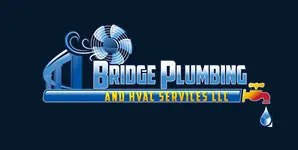Water pressure plays a bigger role in your home than you might realize. From enjoying a refreshing shower to ensuring your washing machine fills up quickly, the ideal water pressure keeps daily tasks running smoothly. When the pressure is too low, you may struggle with slow water flow. On the other hand, if it’s too high, your plumbing system and appliances may face long-term damage.
Finding the balance in water pressure is key. In this article, we’ll explore what the correct water pressure should be, common water pressure issues, and practical solutions like cleaning, repair, and installation to keep your water system healthy.
What Is the Ideal Water Pressure for a Home?
The standard residential water pressure usually falls between 40 and 60 pounds per square inch (psi). Most homeowners find that 50 psi is the ideal water pressure, offering good water pressure without putting stress on pipes or fixtures. If it’s much lower, tasks like showering and dishwashing become frustrating. If it’s much higher, pipes, faucets, and appliances may suffer damage.
Professional plumbers often use a water pressure gauge connected to an outdoor faucet to measure your water pressure. This quick test shows if adjustments to the plumbing system are needed.
Signs of Low and High Water Pressure
Recognizing the warning signs of water pressure problems early helps prevent costly repairs.
Signs of Low Water Pressure
- Weak shower streams that never feel satisfying
- Faucets that dribble instead of flowing steadily
- Washing machines and dishwashers taking longer to fill
- Garden hoses spraying weakly due to low pressure
- Inconsistent water temperature when multiple fixtures are used

Signs of High Water Pressure
- Pipes rattling or banging (often called water hammer)
- Faucets or showerheads leaking even when turned off
- Toilets running unexpectedly
- Frequent leaks in the plumbing system
- Appliances like water heaters wearing out faster
If these issues appear, it means your home’s water pressure and flow need attention.
Common Causes of Water Pressure Problems
Water pressure issues usually come from problems in the plumbing system or changes in the city water supply.
- Mineral buildup: Hard water clogs showerheads and restricts water flow.
- Pipe corrosion: Old pipes reduce water flow throughout the house.
- Leaks: Small leaks lower overall pressure.
- Faulty pressure regulator: A broken regulator can cause both low and high water pressure.
- Municipal water supply changes: City water adjustments may reduce water pressure during peak times.
- Seasonal demand: High summer usage can cause low water pressure issues in certain neighborhoods.
How to Check Your Home’s Water Pressure
Homeowners can easily measure water pressure in a house:
- Buy an inexpensive water pressure gauge at a hardware store.
- Attach it near the water meter or to an outdoor spigot.
- Fully open the faucet and read the pressure.
If it reads below 40 psi, your home’s water pressure is too low. If above 70 psi, you may need to reduce water pressure with a regulator. A professional plumber can provide more accurate pressure readings and solutions.

Solutions for Low Water Pressure
If your water supply suffers from low water pressure, here are practical fixes:
- Cleaning: Unscrew and clean aerators, showerheads, or faucets to improve water flow.
- Repair leaks: Fix hidden leaks that cause low water pressure issues.
- Flush the water heater: Sediment buildup restricts flow flushing restores pressure.
- Replace corroded pipes: New installations restore consistent water pressure.
- Install a booster pump: Installing a water pressure booster pump helps when city water supply is weak.
Solutions for High Water Pressure
High water pressure may feel convenient but can damage plumbing.
- Install a pressure reducing valve (PRV): A PRV lowers incoming pressure to protect your plumbing system.
- Check for a faulty pressure regulator: Replace or repair if it no longer controls pressure throughout your home.
- Add a pressure tank or expansion tank: Helps protect water heaters in closed water systems.
- Schedule a professional inspection: Plumbers can repair, replace, and adjust the pressure throughout the house.
Professional vs DIY Fixes
Some water pressure issues can be solved by homeowners, while others require professional plumbing installation and repair.
- DIY: Cleaning aerators, checking pressure with a gauge, flushing a water heater.
- Professional: Installing a pressure-reducing valve, repiping older systems, fixing main water line leaks, or installing a booster pump.
Preventive Maintenance Tips
Regular maintenance improves your water pressure in homes and keeps the system in good condition:
- Annual plumbing inspection for leaks and faulty regulators
- Flush your water heater to clear sediment
- Test the water pressure with a gauge and adjust the pressure if needed
- Replace old pressure-reducing valves every 7–10 years
- Check the water softener and filtration system to avoid clogs

Why Choose Bridge Plumbing & HVAC in Peoria, AZ?
If you struggle with water pressure in your home, our team provides reliable solutions. Bridge Plumbing & HVAC has over 25 years of experience handling water pressure problems, repairs, and installation.
- 24/7 Emergency Service for water pressure issues and plumbing repair
- Experienced technicians skilled in residential water pressure system cleaning, installation, and repair
- Fair pricing with transparent estimates
- Proven results trusted by families in Peoria and Phoenix
Whether it’s installing a pressure reducing valve, repairing leaks, or installing a booster pump, our plumbers ensure consistent water pressure throughout your home.
Conclusion
The right water pressure is essential for comfort and the long-term health of your plumbing system. By learning how to measure your home’s water pressure, identifying causes of low water pressure or high water pressure, and applying preventive maintenance, you can avoid costly repairs.
If you’re in Peoria or Phoenix and need help with water pressure issues, Bridge Plumbing & HVAC provides expert cleaning, repair, and installation services to keep your home water system running at optimal water flow.


